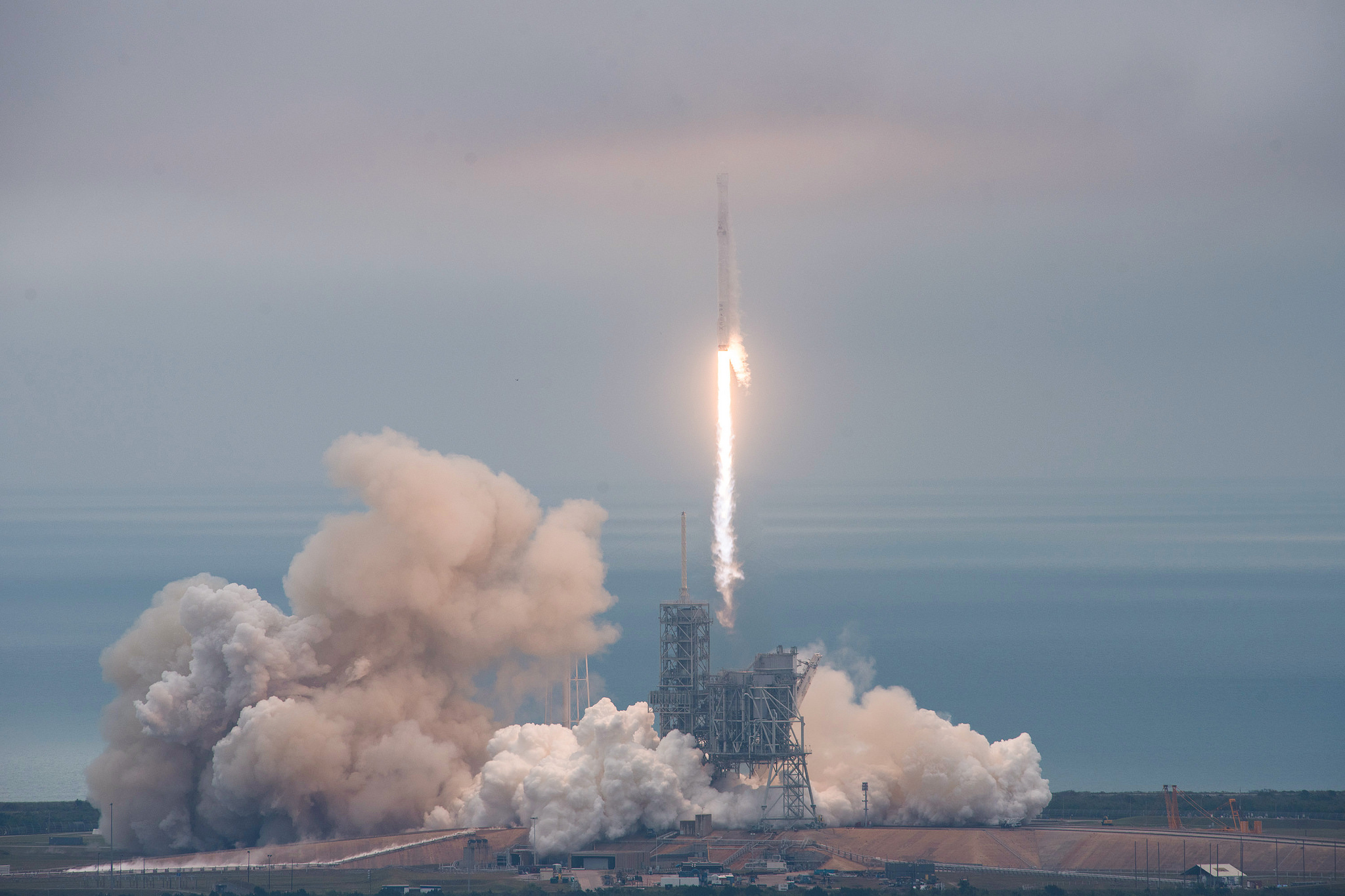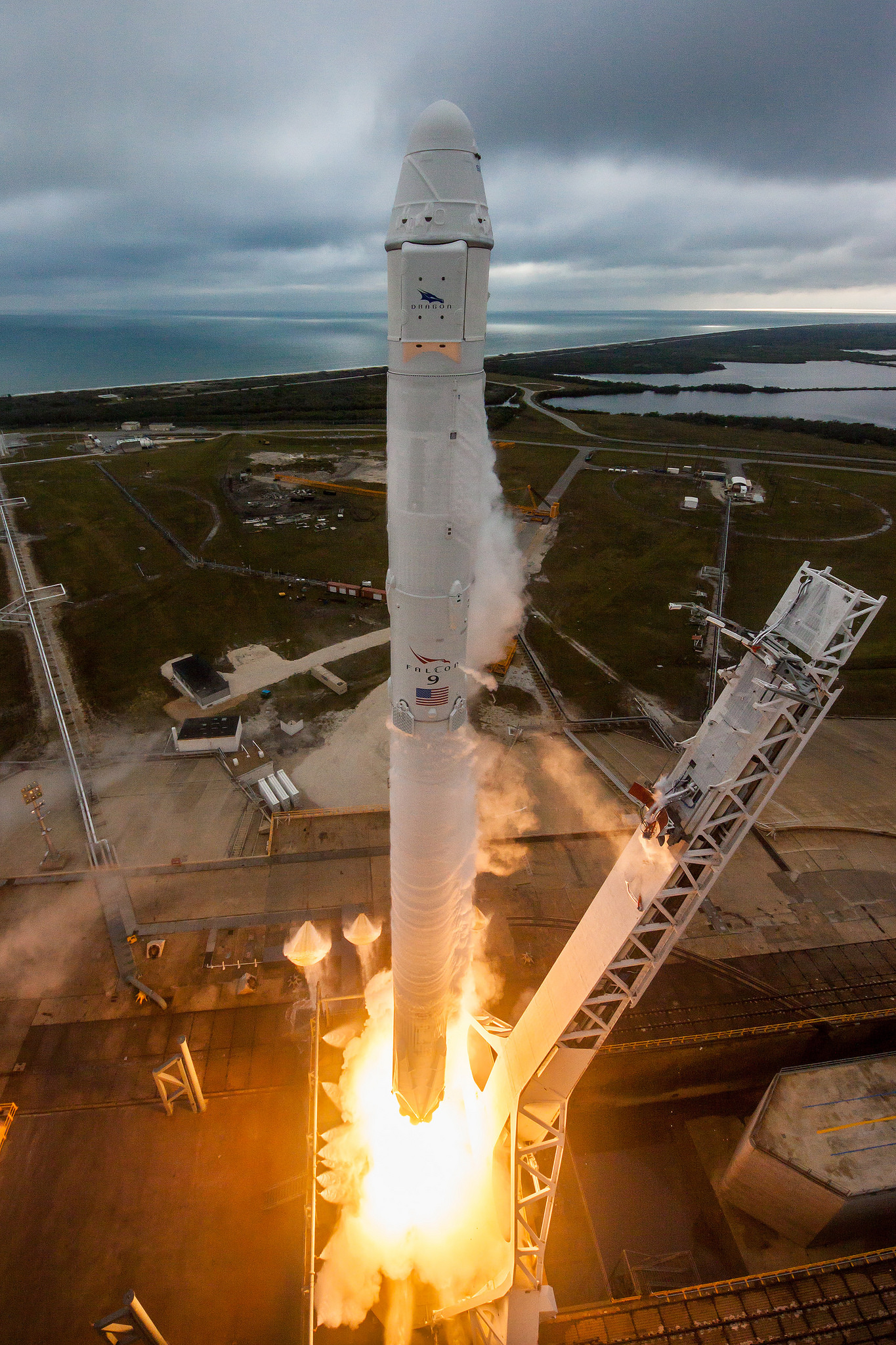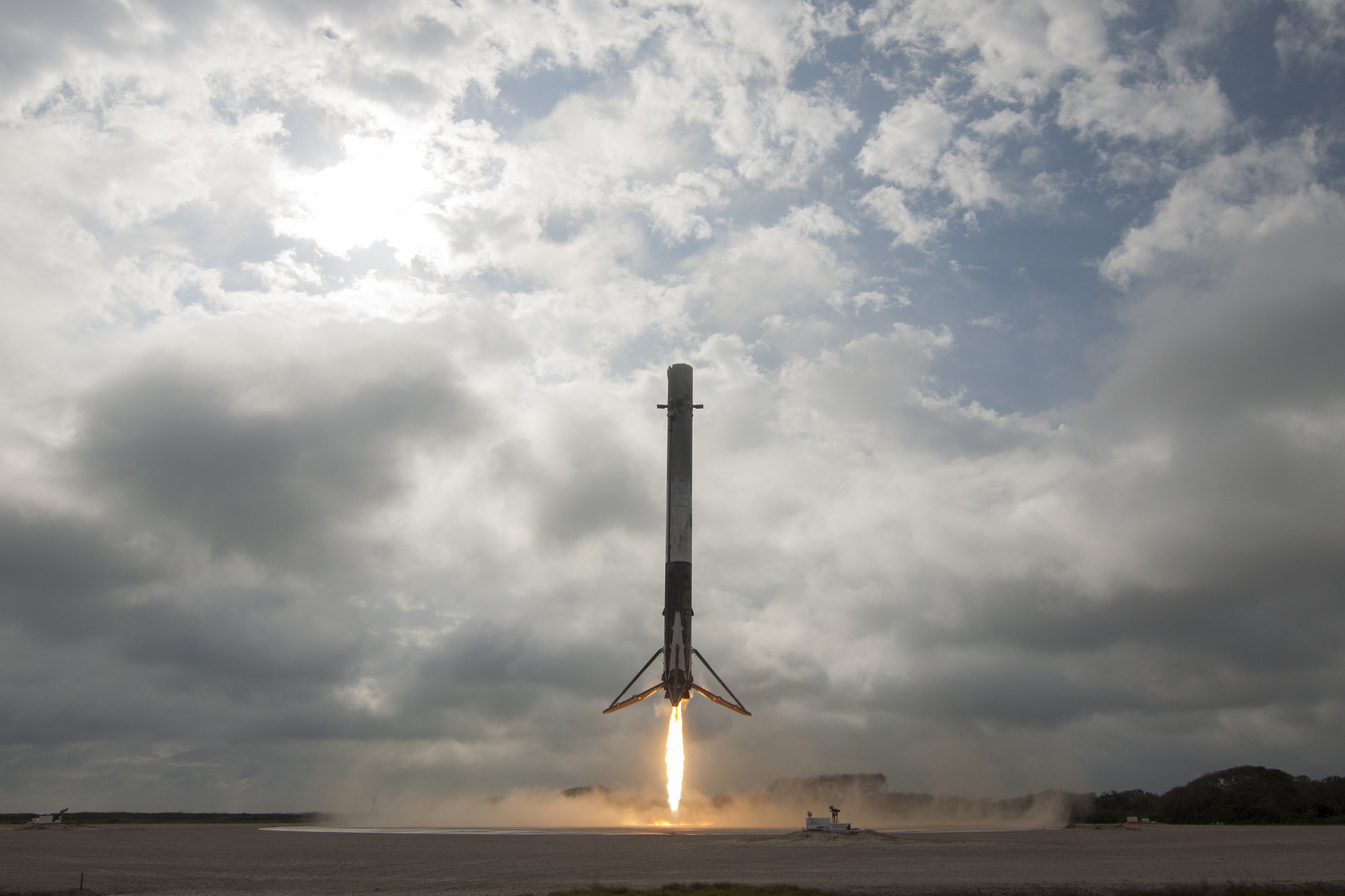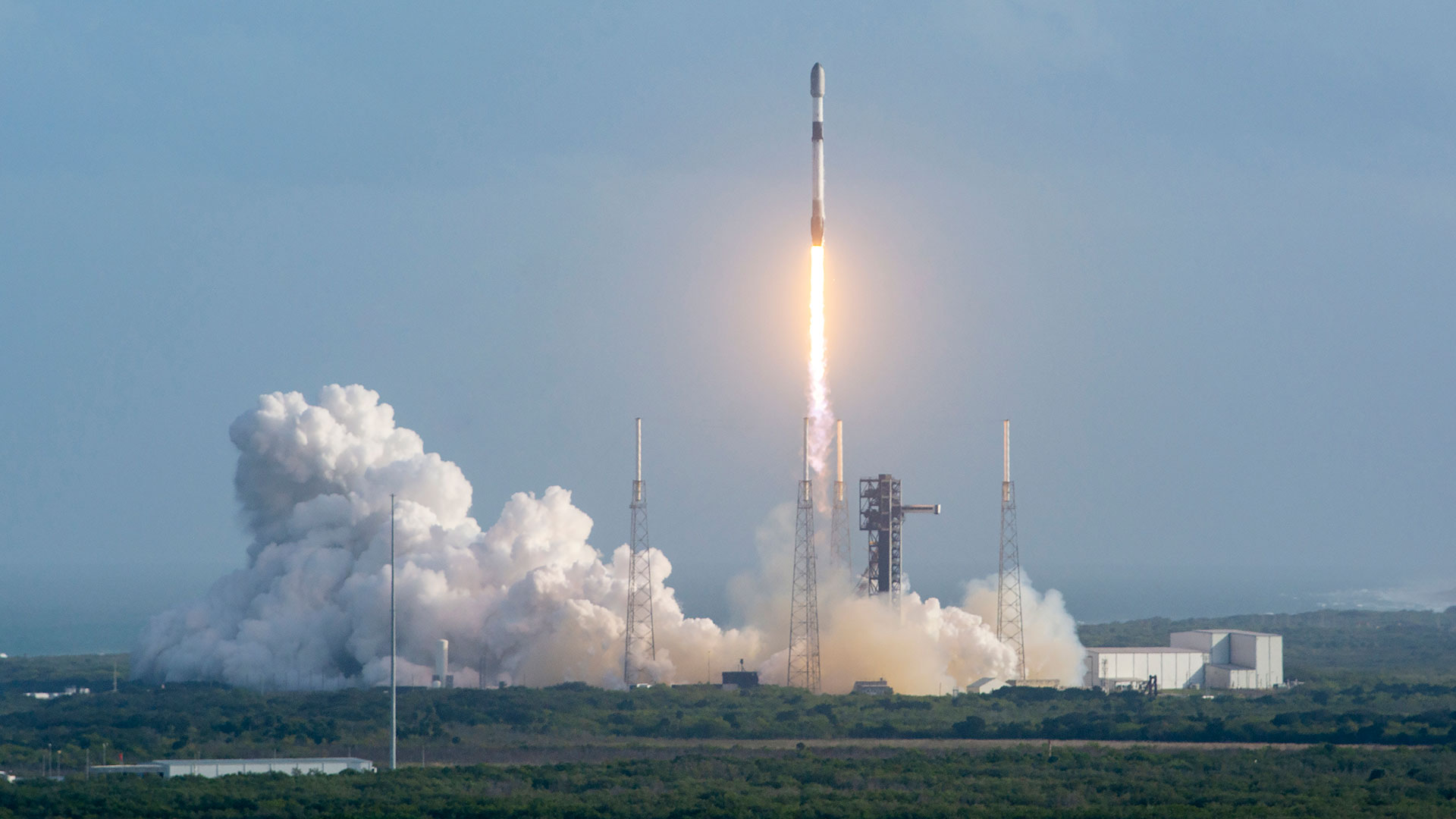SpaceX Rocket Launch (& Landing) Lights Up Leaden Sky in These Amazing Views
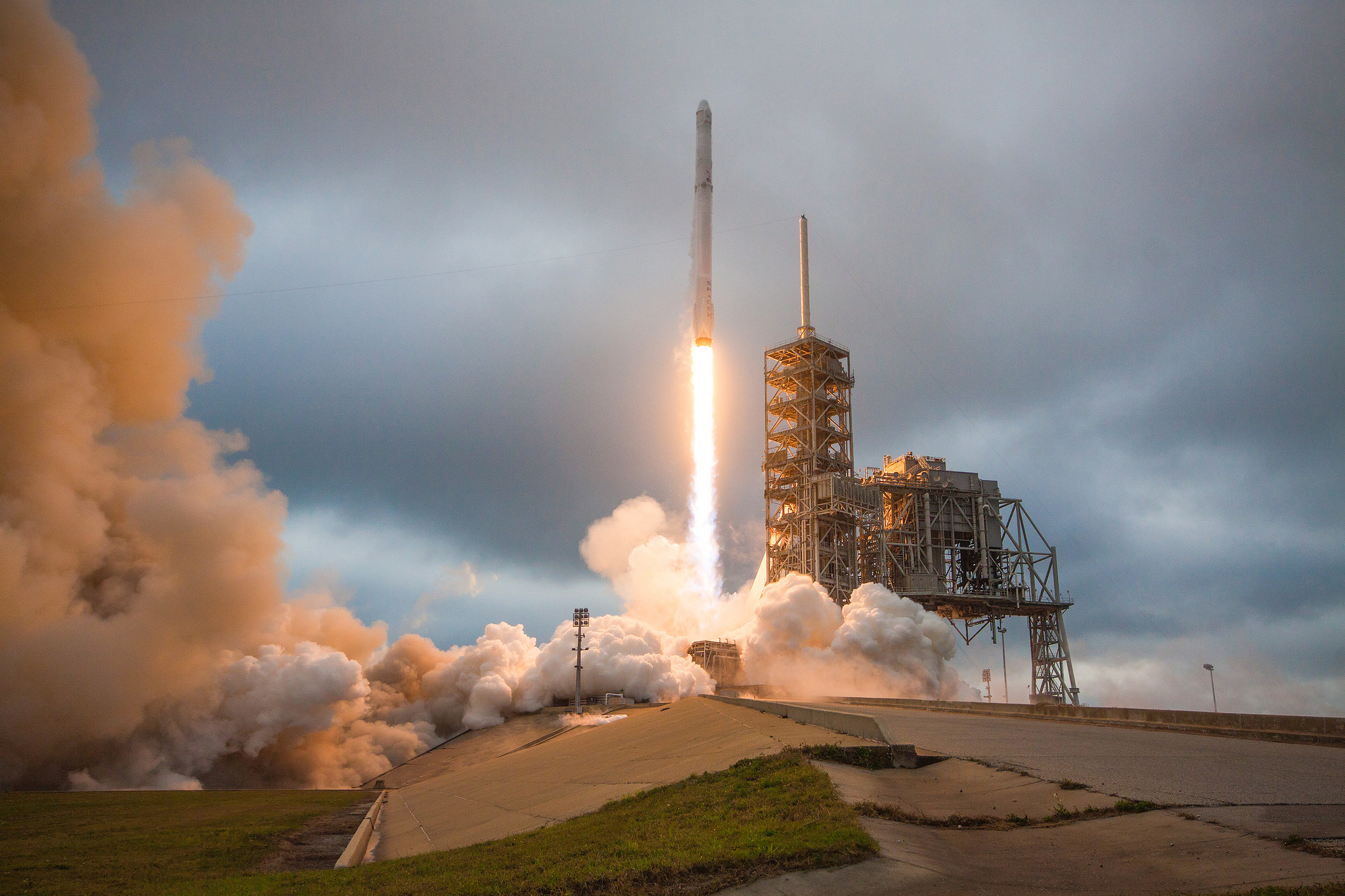
A brilliant orange flame cast against a sky of thick, gray clouds is captured in these glorious videos and images of the launch of a SpaceX Falcon 9 rocket Sunday (Feb. 19) at NASA's Kennedy Space Center in Florida.
The rocket lofted one of the company's Dragon cargo capsules into orbit, on a path to rendezvous with the International Space Station. The craft carried almost 5,500 lbs. (2,500 kilograms) of cargo, including supplies for the station and various science payloads. Check out our full gallery of images from the launch and of the refurbished pad from SpaceX and NASA.
The Dragon spacecraft's scheduled docking with the space station was aborted early Wednesday (Feb. 22) when a problem was identified with the spacecraft's GPS system. But the glitch was corrected within 24 hours, with Dragon making a successful arrival at the International Space Station Thursday morning.
This is SpaceX's 10th flight for NASA's commercial resupply services (CRS) program (the mission is referred to as SpaceX CRS-10, or simply SpaceX-10).
The launch was originally scheduled for Saturday (Feb. 18), but was halted seconds before liftoff. On Friday (Feb. 17), crews reported a helium leak in the rocket's second stage. The launch was apparently delayed because of an unexpected reading from the second stage.
This was the first launch of a SpaceX rocket from the Kennedy Space Center's Pad 39A, which was host to the Apollo 11 mission launch that put the first humans on the moon. (SpaceX is leasing 39A from NASA.)
The first stage of the Falcon 9 rocket made a successful landing following Sunday's launch. SpaceX's reusable rocket design allows the first stage to return to Earth and land upright (instead of being discarded). SpaceX actually captured amazing video of the rocket landing from cameras on the booster itself, as well as from a drone near the company's Landing Zone 1 pad at Cape Canaveral Air Force Station a few miles from the Kennedy Space Center.
Breaking space news, the latest updates on rocket launches, skywatching events and more!
Eventually, SpaceX plans to reuse those spent stages, which the company says will lower the cost of each flight.
This was the first daytime landing at the company's Landing Zone 1 (LZ-1). The company has also landed boosters on a barge in the ocean.
This is SpaceX's second launch of 2017, as well as the second launch following a Sept. 1, 2016, anomaly in which a Falcon 9 rocket exploded on the launch pad during a routine pre-launch test.
Follow Calla Cofield @callacofield. Follow us @Spacedotcom, Facebook and Google+. Original article on Space.com.

Calla Cofield joined Space.com's crew in October 2014. She enjoys writing about black holes, exploding stars, ripples in space-time, science in comic books, and all the mysteries of the cosmos. Prior to joining Space.com Calla worked as a freelance writer, with her work appearing in APS News, Symmetry magazine, Scientific American, Nature News, Physics World, and others. From 2010 to 2014 she was a producer for The Physics Central Podcast. Previously, Calla worked at the American Museum of Natural History in New York City (hands down the best office building ever) and SLAC National Accelerator Laboratory in California. Calla studied physics at the University of Massachusetts, Amherst and is originally from Sandy, Utah. In 2018, Calla left Space.com to join NASA's Jet Propulsion Laboratory media team where she oversees astronomy, physics, exoplanets and the Cold Atom Lab mission. She has been underground at three of the largest particle accelerators in the world and would really like to know what the heck dark matter is. Contact Calla via: E-Mail – Twitter
